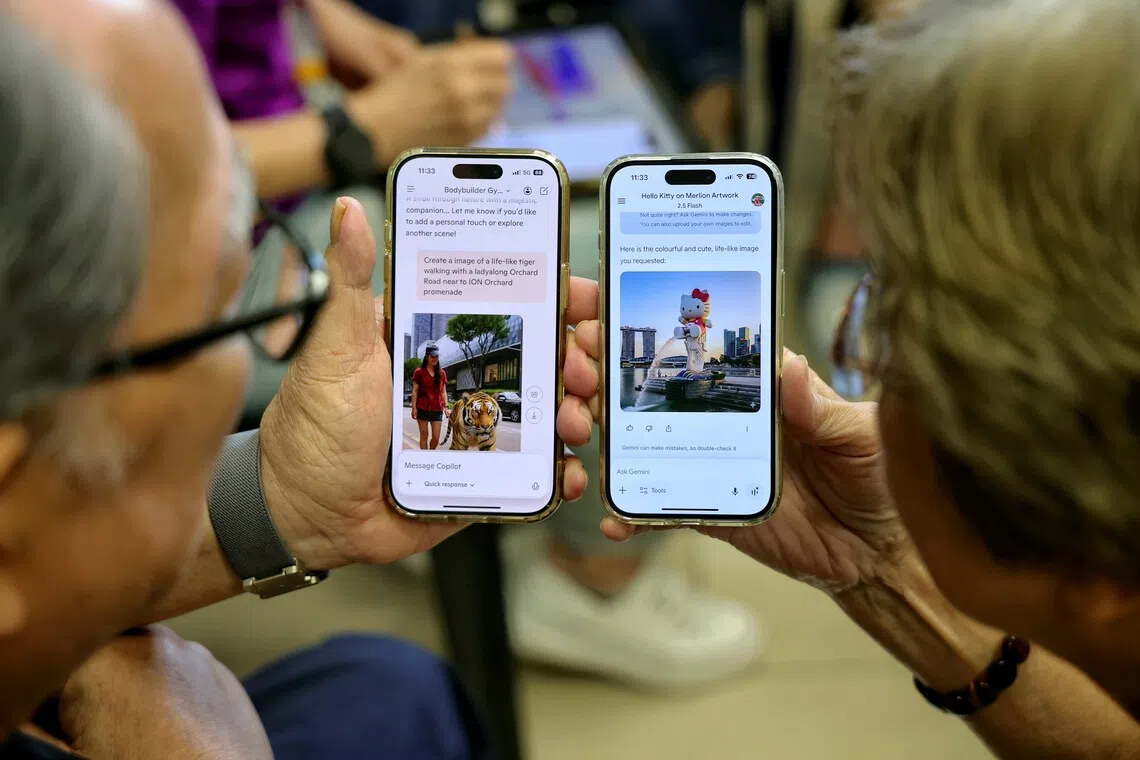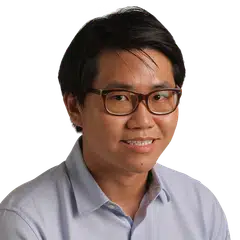NTUC to help senior workers flourish with AI: Desmond Tan
Sign up now: Get ST's newsletters delivered to your inbox

Supporting Singapore’s seniors to use AI well is key to building a smarter, more inclusive and future-ready workforce, said Senior Minister of State in the Prime Minister’s Office Desmond Tan.
ST PHOTO: KEVIN LIM
SINGAPORE – Rather than shielding jobs from the disruption caused by artificial intelligence (AI), the labour movement here will help workers, especially older ones, thrive through what it calls a just transition.
“Our vision is to help our workers to thrive in the AI economy by ensuring a just transition, supporting business transformation and job redesign, and upskilling our workforce,” said Senior Minister of State in the Prime Minister’s Office Desmond Tan on Sept 26.
Supporting Singapore’s seniors to use AI well is key to building a smarter, more inclusive and future-ready workforce, he added.
Mr Tan, who is also deputy secretary-general of the National Trades Union Congress, was speaking on the prospects of AI and an ageing workforce on the fifth day of debate in Parliament on the President’s Address.
“One generates rapid knowledge; the other brings accumulated wisdom,” he said, noting that AI gives answers quickly while wisdom from experience helps people ask the right questions.
“Our seniors with years of experience and wisdom can guide the use of AI.”
He outlined concerns that senior workers shared with the labour movement, including ageism in hiring practices, medical affordability, lack of flexible work arrangements to accommodate caregiving, and growing anxiety about job displacement from AI and offshoring.
He also said NTUC’s engagements have identified three archetypes of senior workers who need further support: those who wish to extend their working life and ensure retirement adequacy; those who want to slow down but still contribute meaningfully; and those who find it hard to re-enter the workforce and require targeted help.
“NTUC is working with our tripartite partners to ensure that our senior workers have options, flexibility and dignity at work, as we navigate the future of work shaped by (AI),” he said.
Mr Tan added that the labour movement will ensure that no worker is left behind – including senior workers – just as it supported workers during the computer revolution in the 1980s, and the rise of the internet in the 2000s.
For instance, employers looking to introduce AI in the workplace can tap NTUC’s Company Training Committee Grant, which defrays costs for reworking processes so that more workers can be assigned to better jobs.
Summing up, Mr Tan called for employers to invest in both age and AI, rather than only AI.
He also encouraged the Government to support a one-stop initiative combining its resources and that of the labour movement and employers to let both employers and employees gain AI readiness.
Senior workers also need to embrace learning and applying technology, including AI, he said.
Separately, fellow labour MP Patrick Tay spoke on supporting the wider Singaporean workforce in dealing with technological change, strengthening the Singaporean core for leadership roles, and evaluating workers based on demonstrable skills, not credentials.
He noted that the recently launched SkillsFuture Level-Up Programme, SkillsFuture Jobseeker Support scheme and the Graduate Industry Traineeships programme had addressed concerns that the labour movement had raised to help workers amid Singapore’s economic transition.
However, he said worries linger among young job seekers and mid-career professionals about the risk of job loss and challenges in job search.
He called for the Government to consider raising the salary threshold for the job seeker support scheme beyond $5,000, taking stronger action against employers who do not retrench fairly and responsibly, and offering incentives to those who hire first-time workers for full-time positions.
He also proposed a tripartite work group on safeguarding workers in the age of AI to ensure a just economic transition, prevent algorithmic discrimination, and ensure responsible use of AI-powered human resources tools, among other moves.
As for the Singaporean-led core, Mr Tay said many Singaporean workers told him that they continue to feel sidelined in their own economy, as companies hire Singaporeans to fill junior positions while foreign talent dominates senior and leadership positions.
“A strong Singaporean core must therefore be a Singaporean-led core,” he said.
This means building a local talent pipeline to prepare Singaporeans for senior and leadership positions before looking abroad, and facilitating knowledge and skills transfer, he said.
“We cannot assume that if we grow the pie, Singaporeans will naturally get their share.”
However, he added: “To be clear, a Singaporean core does not mean closing doors to foreign PMEs (professionals, managers and executives) who can help fill critical skill gaps and support sectors facing labour shortages.”
Mr Tay also underscored the importance of a skills-led economy for hiring workers and nurturing talent, as diplomas and degrees can no longer act as a guarantee of competency.
“In real-world terms, this means that a student majoring in history but who has demonstrated coding skills through relevant work experience or winning hackathons should feel confident in applying for an entry-level programmer position.”



